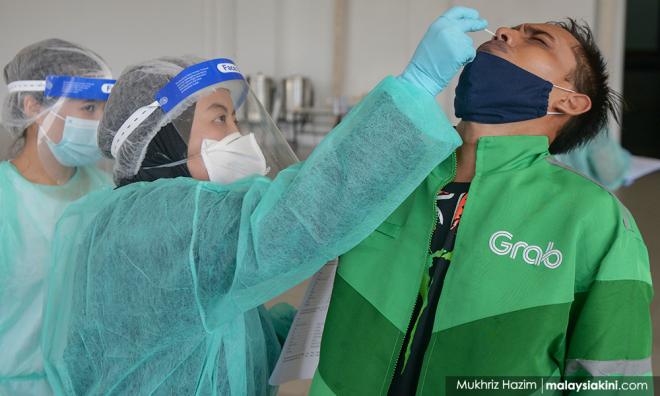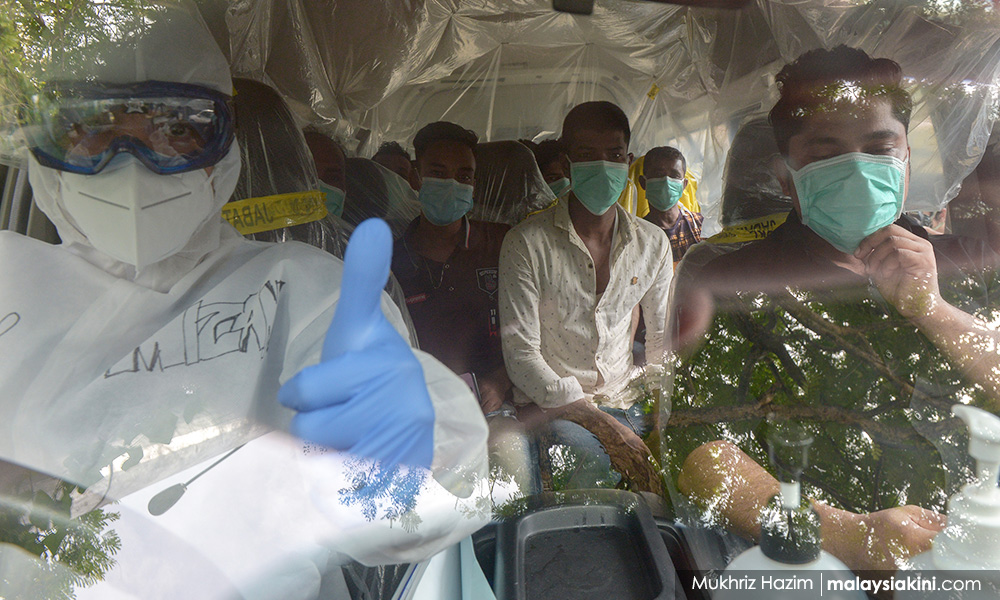
We are moving towards an easing of the movement control order (MCO). This decision has been made in the context of balancing the risk to human life as opposed to economic gain or loss.
There are real risks in taking this cause of action at this stage.
Malaysia has done a very low level of random testing for Covid-19. The figures we have been given are mostly for detected or reported cases.
A report on the website Our World in Data states: "Testing is our window onto the pandemic and how it is spreading. Without testing, we have no way of understanding the pandemic. It is one of our most important tools in the fight to slow and reduce the spread and impact of the virus. Tests allow us to identify infected individuals, guiding the medical treatment that they receive. It enables the isolation of those infected and the tracing and quarantining of their contacts. And it can help allocate medical resources and staff more efficiently."
But testing in Malaysia has been woefully low. The figures as of April 29 are 4.76 per thousand people; 154,203 in total. This does not help much.
Our neighbour Singapore's figures are 17.08 per thousand people; 99,929 in total (as of April 27 April).
Testing on a wide scale is not easy requiring massive manpower and resources. The Health Ministry is doing its best with available resources but progress is limited.
In this scenario, it is not possible to analyse with any degree of certainty the actual prevalence of the virus. The R0 (R naught) figure (the rate of infection or transmission of the virus), which is an important metric cannot be properly ascertained.
This must be understood in the context that the majority of infected persons are asymptomatic, they show no signs of infection. Only an antibody test will reveal that they have been infected.
So there could be thousands of infected people who can spread the virus without having any symptoms themselves.

To this, we add the problem that there are large numbers of illegal workers in Malaysia who will not come forward for fear of action being taken against them.
This category will probably comprise both symptomatic and asymptomatic infected persons. With the opening up of businesses, these illegal workers will come back to work in factories, restaurants and other industries.
The government's assertion that the virus is under control is an over-statement and meaningless in the light of inadequate testing.
We should proceed with great caution as some countries that have opened up show an immediate rise in infected persons.
We have not eliminated or "controlled" the spread of the virus. All our lockdown and social distancing can achieve are to delay the spread. We buy time until a vaccine or pharmaceutical cure is achieved.
Until then we should use the delay of the spread to gather our resources to be able to handle a widespread infection in terms of adequate medical and hospital facilities.
Without this state of readiness, we will be risking lives. The economy can be revived in time but lost lives cannot be recovered.
The bogey of billions likely to be lost is not very intimidating in a country that has recovered from hundreds of billions lost through corruption and bad governance for over 30 years.
The writer, DP Vijandran is a former deputy speaker of Dewan Rakyat. - Mkini



No comments:
Post a Comment
Note: Only a member of this blog may post a comment.